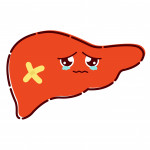Gilead Sciences’ Epclusa (sofosbuvir/velpatasvir) is highly effective at treating hepatitis C virus (HCV) among those with genotype 3 of the virus and compensated cirrhosis (the milder form of the advanced liver disease). This is traditionally a hard population to treat.
Presenting their findings at the Annual Meeting of the American Association for the Study of Liver Diseases in San Francisco (The Liver Meeting), researchers pooled data from real-world cohorts from various nations. They excluded people with a history of decompensated cirrhosis (the more advanced form of the severe liver disease) or prior treatment with a hep C drug in the NS5A inhibitor class as well as those who were previously treated for HCV for longer than 12 weeks and were younger than 18 years old.
The cohort included 623 people who took Epclusa for 12 weeks and 317 who took the same regimen plus ribavirin. The final safety analysis included all 940 people, while the efficacy analysis included all 732 people who had data recorded of their hep C viral load 12 weeks after completing treatment.
Fifty-three (11 percent) of those in the Epclusa group had been treated for HCV before, compared with 49 (21 percent) of those in the Epclusa plus ribavirin group.
A total of 463 of 496 people (93.3 percent) in the Epclusa group achieved a sustained virologic response 12 weeks after completing therapy (SVR12, considered a cure), as did 228 of 236 (96.6 percent) of those who also took ribavirin. The difference between the two cure rates was not statistically significant, meaning it could have been driven by chance.
Of those who took just Epclusa, 27 of 496 (5.4 percent) experienced virologic failure, two of them while on treatment. As for those who also took ribavirin, 8 of 236 (3.4 percent) experienced virologic failure.
The addition of ribavirin did not alter the cure rate among any treatment subgroups.







Comments
Comments